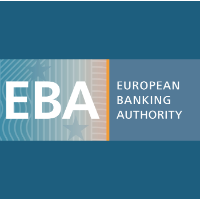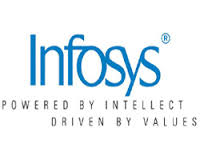Published
- 06:00 am

The European Banking Authority (EBA) published today its final Guidelines under the revised Payment Services Directive (PSD2), on the criteria on how to stipulate the minimum monetary amount of the professional indemnity insurance (PII) or other comparable guarantee for payment initiation services (PIS) and account information services (AIS).
Undertakings intending to carry out these services will need PII cover or a comparable guarantee as a prerequisite to be granted authorisation. The Guidelines, therefore, contribute to the overall objectives of PSD2, by strengthening the liability regime governing the interactions between the different actors involved in electronic payment transactions.
The EBA mapped market practices in the European Union with regard to the provision of PIS and AIS and applicable insurance policies. Based on the findings of the mapping exercise, the EBA elaborated on the criteria and indicators set out in PSD2, identified additional indicators, developed a calculation method for the indicators, and established a formula for the calculation of the minimum monetary amount of the PII or comparable guarantee.
In the final Guidelines, the EBA considered the feedback received during the public consultation and introduced some changes and clarifications. These include additional specifications on the scope of the PII and comparable guarantee. Furthermore, the EBA deleted the indicators ‘geographical location' and ‘number of contracts' under the risk profile criterion in Guideline 5, renamed the ‘value of claims' indicator to ‘value of requests for refunds' and reduced the percentages applied to the top tiers in the calculation of some of the indicators.
The resultant final Guidelines, therefore, require the minimum monetary amount of PII or comparable guarantee to be calculated by adding up the amounts that are reflective of the risk profile criterion, the type of activity criterion, and the size of activity criterion respectively.
The Guidelines will apply from 13 January 2018.
Legal basis
These Guidelines have been drafted in accordance with Article 5(4) of Directive (EU) 2015/2366 on payment services in the internal market (PSD2), which mandates the EBA to issue guidelines addressed to competent authorities on the criteria on how to stipulate the minimum monetary amount of the professional indemnity insurance (PII) or other comparable guarantee for payment initiation services (PIS) and account information services (AIS). PSD2 further specifies that, when developing these Guidelines, the EBA must take into account the criteria specified in Article 5(4)(a)-(d) of PSD2.
Related News
- 08:00 am

MYPINPAD, an enabler of multi-factor authentication for touchscreen devices, such as smartphones and tablets, has launched the initial findings from its exclusive survey: Consumer Trust and Mobile Payments Growth.
The unique research explores how and why online commerce has been damaged by fraud, the effects this has had on consumer’s subsequent decisions about transacting online, and the level of trust consumers have in online commerce. The results indicate that favouring speed and convenience over visible security measures, could be a costly mistake for businesses.
David Poole, Business Development Director at MYPINPAD, said: “The latest UK government figures show 90% of large businesses and 74% of SMEs have suffered a security breach[1]. Increasing confidence is not just about preventing fraudulent transactions – it is also about boosting the number of successful transactions. There needs to be a consistent and convenient way for consumers to authenticate themselves for online transactions.”
“This research highlights the need for banks, retail, payment and card schemes to strike a better balance between user experience and security. Consumers are well informed about the risks of transacting online and on mobile. For many, loyalty and a great experience entails peace of mind and tangible security. Multi-factor authentication and transparency around appropriate security practices are key to winning consumer trust.”
Key findings:
Consumers do not believe transaction speed is more important than security. They want to see multi-factor authentication implemented.
When asked what online retailers could do to improve the trust consumers have in them:
- 40% of respondents would like to use cardholder PIN as a means of authenticating an online transaction
- 50% would like to use a combination of both PIN and biometrics
- Only 2% of consumers believe transaction speed is more important than security
Why is this?
Consumers have huge concerns about fraud:
- Over two-thirds of respondents, 67%, are concerned about their online banking and shopping security, with one in four respondents being ‘very concerned’
- Just under one in three of our survey respondents said they have been a victim of online fraud
Trust is being harmed and this is impacting on consumers’ behaviour:
- 61% stated information about data breaches and online fraud has impacted their trust of online shopping and banking
- As a result, 11% shop less and almost one in 10 said they do not use mobile devices to carry out transactions
This survey is the second in a series and a central piece of research for anyone looking to understand the dynamics around consumer trust. It explores what retailers, banks and payments processors could do to retain customer trust, specifically in terms of security, authentication, and the opportunities for those who capitalise it.
Related News
- 08:00 am

Synechron Inc., a global financial services consulting and technology services provider, has today announced its partnership with Quantexa, a specialist entity resolution and network analytics software provider. The companies have teamed up to combine the strength of Quantexa’s software with Synechron’s business consulting expertise across its Customer Lifecycle Management (CLM) practice to help financial services firms manage challenges like anti-money laundering (AML), fraud, credit risk, and trader surveillance that place their businesses at significant risk and can cost them considerably.
Quantexa enables companies to make better decisions with their data through real-time entity and network resolution enhanced with network analytics and Artificial Intelligence (AI). Their technology allows users to knit together vast and disparate data sets and derive actionable intelligence. This is done by using Dynamic Network and Entity Scoring which gives businesses the ability to score entities and networks in both batch and real-time. This capability allows organizations to adapt to different use cases, react to crises, and evolve with requirements. With Synechron’s business consulting and front-to-back end development expertise, shared clients will be the first to experience Quantexa’s powerful entity resolution and network analytics software customized to their unique business use cases and with bespoke application development expertise.
Earlier this year, Synechron, as part of its AI Accelerator Program, announced its Data Science Accelerator for AML/Fraud which built a use case and technology architecture layer on top of Quantexa’s platform. The accelerator enables firms to protect their key assets from financial crime through algorithms that can detect potential illicit behavior, allowing the firm to react dynamically to the threat and proactively put in place controls to counter such threats. It uses behavioral pattern detection and predictive analysis, combined with an expert understanding of financial service firms’ operations to deliver a powerful surveillance solution that can be further customized to firm processes and controls.
This partnership expands on that work, allowing businesses to apply that same technique to other use cases where organizations are further looking to create a single view of their customers and to more strategically and insightfully market and sell products, optimize processes and services, and react promptly and cost effectively in crisis management. These areas include Fraud, AML, KYC, Anti-bribery and Corruption, Trader and Trade Surveillance, Crisis Management, Credit Risk Assessment, Procurement, and Marketing Targeting with a 360-degree customer view.
“Financial services firms are looking for Data Science to help them solve complex business challenges. Financial crime, whether in the guise of fraud, money laundering, terrorist financing, rogue trader, bribery, corruption, or market abuse, presents a clear and present danger for the financial services industry,” said Tony Clark, Managing Director of Synechron said. “Data Science has the ability to bring together a vast amount of data and create a single view of that data that can then be used to understand deeper patterns and relationships for strategic decision-making; however, realizing the full potential of the technology requires a deep understanding of the technology and the related business operations. Quantexa’s capability-led approach allows end-users to build entity and networks dynamically on the fly as well as in batch, which allows for a high-level of customization and a need for combined consulting and development guidance.”
“Synechron’s digital, business consulting and technical teams provide strong expertise and a proven track-record in delivering complex and strategic solutions, including systems integration, application development, customization and support. This combined with their strong domain knowledge for fast deployment made them a natural partner for Quantexa,” said Imam Hoque, COO and Global Head of Product for, Quantexa. “Their accelerator approach focuses on giving clients a real, customized solution to their problems with proven technology, and we were glad to be a part of that initiative. Now, we look forward to expanding the relationship to deliver similar solutions to clients across a range of use cases.”
Related News

Johan Gerber
Vice President of Security and Decisison Products at Mastercard
We live in an incredible, and incredibly connected, world with nearly half the population now online – and there is no turning back. see more
- 01:00 am

UnionPay International is now accelerating the promotion of its innovative products and services globally. Southeast and Northeast Asia are the key target markets.
The transformation of UnionPay cross-border payment service
Mobile QuickPass has become a major product promoted by UnionPay worldwide. It supports various mobile Pay products, UnionPay QR code payment, in-store payment with UnionPay chip cards and wearable devices, as well as in-app online payment.
Now, mobile QuickPass NFC payment is accepted at about 500,000 POS terminals outside mainland China. Mobile QuickPass QR code payment is launched in Hong Kong and Singapore. The apps of merchants in Hong Kong and Japan support mobile QuickPass too.
UnionPay International is also offering mobile payment service to more global customers. Hong Kong cardholders may add their UnionPay cards issued by Bank of China, Standard Chartered Bank and Bank of East Asia to their mobile phones. UnionPay thus becomes the only card brand that provides mobile payment service for the local debit cardholders. Mobile QuickPass is also available in Macau and South Korea.
Over the past few years, UnionPay International has developed innovative products that can be used internationally, including cross-border B2B platform, digital wallet, cross-border marketing platform U Plan, etc. Supporting these innovative products are TSP (Token Service Platform), TSM (Trusted Service Management), HCE cloud platform and a series of other platforms.
UnionPay QR code payment launched outside mainland China
Since this year, UnionPay International is accelerating the promotion of its QR code payment outside mainland China. Southeast Asia is the core region for now.
This is due to two factors. First, UnionPay is extensively accepted in Southeast Asia, and has also participated in the financial infrastructure construction and payment standard cooperation in several Southeast Asian markets. Therefore, the technical condition is mature for promoting innovative products. Second, countries in the region have great demands for payment industry upgrade.
Besides Hong Kong and Singapore, mobile QuickPass QR code payment will be launched in Thailand, Indonesia and Australia soon. In Southeast Asia, UnionPay International is also collaborating with several countries to launch e-wallet products within this year.
In Thailand, UnionPay is collaborating with Visa and Mastercard to develop a common standard for QR code payment that will be recommended by Bank of Thailand to the local financial institutions and merchants. It is expected that more Southeast Asian countries will adopt UnionPay standard, which is compatible with international standard and more secure, when launching QR code payment products in the future.
Related News
- 07:00 am

NEX Optimisation, which helps clients reduce complexity and optimise resources across the transaction lifecycle, announces today that it has launched an automated credit rebalancing tool that specifically addresses limit over-allocation by prime brokers.
Designed in close partnership with Citi, Rebalancer enables dynamic allocation of credit across client trading venues, enabling clients to move credit from one platform to another in real time. Prime brokers currently allocate credit to multiple trading venues but do not have the ability to move it around if there is excess credit on one and a shortage on the other. Rebalancer leverages existing ECN limit capabilities to dynamically allocate credit wherever the client trades.
Rebalancer considers the clients overall net position across all venues. If the client has offsetting positions, that is if they have directional positions on each platform but are flat overall, then Rebalancer automatically extends credit. Once the net position is no longer flat, the rebalancing tool withdraws this credit. As a result, prime brokers can extensively reduce the amount of excess carve out at each ECN, capping exposure in the event of a negative event such as a technical issue or faulty algorithm.
Rebalancer will also allow for dynamic management of designation notice limits via connectivity to NEX Optimisation’s Traiana Designation Notice Manager service. Designation notices communicate the credit limits, permitted products, currencies and tenors a client can trade. Designation Notice Manager is the industry standard for electronically negotiating, exchanging and monitoring designation notices between FX prime brokers and executing brokers.
Rebalancer is the latest FX risk solution that NEX Optimisation has launched over the past five years. Recent services include:
- CreditLink: a credit-monitoring tool for prime and executing brokers which monitors overall credit lines, as well as carve-outs to different venues.
- Automated KillSwitch: KillSwitch extends CreditLink and allows prime brokers to instantaneously and automatically disable ECN liquidity for end-clients in breach of overall credit lines.
- Designation Notice Manager: a central and electronic repository of Master Give Up agreements and related designation notices, this solution allows customers to streamline the setup, amendment and termination of client give up lines from a resource-intensive, manual and error-prone exchange of paper documents to a centrally maintained, fully electronic platform.
- triReduce CLS: forward FX compression allowing customers to enhance capital efficiency and leverage ratios, manage counterparty credit risk and reduce operational risks and costs by eliminating notional principal and offsetting bilateral exposures.
- triBalance: counterparty credit risk optimisation resulting in reduced capital and funding costs.
Sanjay Madgavkar, Global Head of FX Prime Brokerage at Citi, said: “The development of Rebalancer is a very important milestone for the prime brokerage industry and we are very excited to see the product go live. This innovation will serve the needs of prime brokers as well as trading venues and clients, all of whom have an interest in enhancing risk management.”
Joanna Davies, Managing Director, Traiana, said: “This is a further example of NEX Optimisation leading the way in risk mitigation in the FX market. Recent volatile markets and exceptional events have led FX prime brokers to intensify their focus on risk management. By allowing dynamic reallocation, Rebalancer will give these prime brokers further comfort, leading to more credit availability in the market as a whole.”
Related News
- 01:00 am

National Settlement Depository (NSD), Russia’s central securities depository, and VTB Registrar have signed a cooperation agreement.
As part of the agreement, the parties agreed to study the possibility of simultaneously using the e-voting system (NSD) and the Meeting Portal (VTB Registrar) at shareholder meetings.
As a result of this interaction, NSD and VTB Registrar plan to provide broader opportunities to investors and issuers to utilize NSD’s e-voting system.
Also, NSD and VTB Registrar plan to study the opportunity of integrating their platforms for a seamless passage of users between NSD’s and the registrar’s services.
Maria Krasnova, Deputy Chairman of the Executive Board, NSD, said: “Expanding the circle of registrars supporting e-voting will allow NSD to provide more investors with services that have maximum quality and reliability. This is a very important task for us, and resolving it will help promote best corporate practices on the Russian market.”
Konstantin Petrov, CEO, VTB Registrar, added: “VTB Registrar is the largest modern registrar in Russia. We strive to provide our clients with advanced technologies and use a professional approach in fostering interactions with issuers and shareholders. VTB Registrar’s and NSD’s experience will let us offer the most convenient services on the Russian market and will increase its attractiveness for investors. We see NSD as a strong and reliable partner in developing electronic services that allow investors to exercise their rights.”
Related News
- 06:00 am

Goodments is creating a more sustainable future by making it easy for people to invest in good business, with an app that matches people to shares that fit their environmental, social and ethical values.
Founded in Sydney Australia. Goodments is the brainchild of Tom and Emily, a husband and wife team, each with 15 years experience in finance and marketing respectively.
By overlaying independent sustainability ratings on financial data, Goodments gives users a complete picture of a business allowing them to match shares to a customer’s personal values. This is done with an algorithm that uses choice modelling to prioritise sustainability issues, as well as exclusions, to serve up a unique set of matches to each user. They can then explore and buy local and international shares through the app.
Why now? With many Governments de-prioritising sustainability issues and with 86 percent of millennials believing that a company is more responsible for sustainability issues than governments; it’s time to put the power into the hands of the people.
Importantly, it is also better for the wallet. With sustainable investments outperforming their polluting counterparts by as much as 3 times. Approximately 50 percent of institutional fund managers use an ESG overlay (environmental, social and governance), yet until now this information hasn’t been made available to the average joe.
Why will it succeed? Because the millennial generation are the most socially conscious ever seen. As of 2017, they are also the generation with the most spending power, wielding over $3 trillion globally and set to inherit $30 trillion in the next decade. Yet the current investment experience doesn’t align with their world view, as it is based on purely financial data. Goodments is changing that and in doing so, giving the 80 percent of this generation looking for property alternatives a better option.
How to help them launch: Goodments is undertaking a crowdfunding campaign on pozible, which has already raised 7K. With a witty video that plays to topical issues the millennial generation face. In exchange for generous support, there are a raft of great sustainable rewards - from Keep Cups and Who Gives a Crap toilet-paper to limited edition prints from talented photographers Sam Phelps and Elise Hassey.
How to sign up: Whilst the product is still in development with launch planned for end of August, Goodments has a waiting list. For every sign up they’ve committed to plant a tree, in partnership with seedthechange.org who have reforestation projects around the world.
Related News
- 03:00 am

Infosys, a global leader in consulting, technology and next-generation services, today announced that it will open its next Technology and Innovation Hub in North Carolina and hire 2,000 American workers in the state by 2021.
These new hires will include recent graduates from the state’s prestigious network of colleges, universities and community colleges, as well as local professionals who will benefit from upskilling through Infosys’ world-class training curriculum. As part of Infosys' commitment to create 2,000 jobs in the state of North Carolina, Infosys is partnering with the North Carolina community college system to create a customized program designed to train the workforce of the future. North Carolina is also contributing a $3 million grant towards upskilling these workers.
“It is our endeavor, and our passion, to be a leader in boosting American innovation in the transformation of core industries, and to help create the next generation of American innovators and entrepreneurs through world-class education and training,” said Dr. Vishal Sikka, Chief Executive Officer, Infosys. “This is absolutely critical as we help our US clients, and every client, renew their core businesses and simultaneously innovate into new breakthrough areas, while empowering employees through learning and education. To this end, North Carolina was a clear partner for us, and we are really excited to announce one of the largest jobs commitments ever in North Carolina state history. With a talented technology workforce focused increasingly on progressive fields such as advanced manufacturing and clean technology, a diverse economy strong in financial services and life sciences, and a rich talent pool drawn from North Carolina’s many top universities, research institutions and community colleges, these graduates and experienced professionals will leverage AI, machine learning, analytics, cloud, and more, to drive the transformation of core American industries such as aerospace, banking, biotech, and energy.”
“North Carolina’s central role in technology innovation makes our state a perfect fit for Infosys,” said Governor Cooper. “Our world-class universities and our high-tech workers drive growth and attract companies from around the world that are looking to innovate."
The North Carolina Technology and Innovation Hub is part of Infosys’ investment in the future of the U.S. tech workforce and will focus on cutting-edge areas, including artificial intelligence (AI), machine learning, user experience, emerging digital technologies, cloud and big data. The Hub will enable the company to more closely serve valued clients within North Carolina and the surrounding region, where increasing demand for co-innovation, requires skilled technology talent to be at zero distance to the customer. This investment also enables Infosys to build on the strength of its existing North Carolina network of highly skilled professionals. The Hub will facilitate greater collaboration and advancement in key North Carolinian industries such as financial services, information technology, life sciences, clean technology, advanced manufacturing and more.
Infosys’ investment in North Carolina and wider national commitment to hire 10,000 American workers is a natural evolution of the company’s three-decade legacy in the United States, and builds on the company’s commitment to continuous learning, ecosystem collaboration and focus on achieving breakthrough innovations for clients. This commitment to education also extends to the company’s charitable foundation, Infosys Foundation USA. In North Carolina, the Foundation has provided multiple grants for classroom technology and computer science training to teachers and schools. To date, these grants have reached 2,400 students and 26 schools across the state.
Related News
- 07:00 am

The Central Bank of Azerbaijan has chosen to conduct its auctions for foreign exchange (FX) instruments and deposits through Bloomberg’s auction platform, officials announced today.
“Bloomberg’s auction platform provided us with advanced experience in handling FX and deposit auctions with its flexible, swift and multi-purpose auction techniques, thus becoming a single platform for those monetary operations conducted by the Central Bank,” says Ali Ahmadov, Director of Market Operations Department of the Central Bank of Azerbaijan.
“We are very pleased to be working with the Central Bank of Azerbaijan and offering a platform that enables a step change in the management of monetary operations,” says Tod Van Name, Bloomberg’s Global Head of FX Electronic Trading. “The platform provides an optimal and cost-effective way to conduct auctions for
FX instruments and deposits in the local market — all within a single, comprehensive solution.”
Bloomberg’s multi-asset auction platform helps market participants track central bank auctions and enter bids. It is part of an extensive suite of functionalities that allow central banks to auction off their debt, FX, repos and depositary notes to market participants. Auction data will go into Bloomberg’s FX electronic trading platform, FXGO. Available to subscribers of Bloomberg Professional Services, the system is fully integrated with Bloomberg’s data, news, analytics and communications tools.









